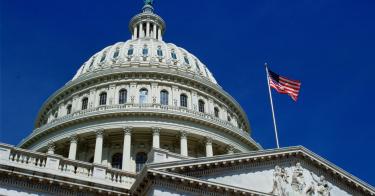The growth policies of President Trump have brought the United States economy back to life. Lower taxes and fewer regulations have put more money in the pockets of Americans, particularly lower wage workers. The unemployment rate is at the lowest level in decades. Lawmakers should capitalize on this period of strong growth. It is an opportunity to rein in endless spending and to pay down the national debt. Washington sadly continues to swipe the national credit card and stick future generations with the bill. The gross national debt is at an unsustainable $22 trillion.
Congress has passed the Bipartisan Budget Act of 2019, the fourth in a series of “deals” to raise spending caps imposed by the Budget Control Act of 2011. This latest deal effectively kills that old law, which was put in place to curb spending growth. This agreement will increase spending by $324 billion in the next two years and could add nearly $2 trillion in new debt over the next decade. It also suspends the debt limit, allowing the federal government unfettered borrowing power for the next two years.
Where is all the new spending going? Just over half of the $324 billion increase provides critical funding for defense. That is essential as threats rise across the globe. However, much of the remaining increase would go toward programs that are not priorities. Many of these programs should be left to state and local governments or to the private sector so that Congress can focus taxpayer dollars on truly national needs more in line with the constitutionally mandated duties of the federal government.
But the new additional discretionary spending approved by this bill is not what is ultimately driving our debt problem. More than 70 percent of federal spending growth is being driven by Social Security and health care programs like Medicaid. Their spending has been on autopilot, with regular increases built into the law instead of debated by lawmakers. It is so bad that in only 22 years, all this entitlement spending and interest payments on the debt alone are projected to consume all revenue, down to the very last taxpayer dime, that the federal government brings in.
What is the upshot of this important opportunity to make long overdue spending reforms? Looking to the next generation, a child born today will be burdened with a nearly $50,000 share of the public debt. By the time this child reaches age 30, that share is projected to hit almost $135,000. That is not a brighter future for our children. It is a future of increasing taxes on individuals and on businesses to pay down the national debt.
Those higher taxes will leave consumers with less money to purchase everything from food and homes to cars and computers. Businesses will take a double hit, first from higher taxes, then from shrinking consumer demand for goods and services. As the economy contracts, that will necessarily result in layoffs and lower wages, which will reduce demand for goods and services even further. Shrinking businesses, less people working, and lower wages mean tax revenues for the government will wither, but our obligation to pay off the debt will certainly not be over.
Faced with dwindling tax revenues, the government will likely be forced to drastically cut public services, and Americans will wonder why they are turning over such a large portion of their incomes to the government but getting so few services in return. The downward spiral could continue for generations to come. All this could happen because politicians failed to muster the courage to stick to a budget and stop their out of control spending, and because not enough Americans demanded they do so.
President Trump tweeted that “there is always plenty of time to cut” and presented three budget proposals that would fundamentally reshape the role of the federal government and significantly cut down the national debt. But the latest deal undermines many of those priorities. The longer Congress waits to implement reforms, and the longer we go on tolerating business as usual, the higher the price will be for those who follow us. We owe it to our children and grandchildren to demand bolder responsible leadership from those we entrust to protect both our future and theirs.
This piece originally appeared in The Hill on 8/5/19




